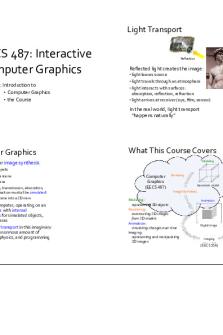Charvak\'s Philosophy - Lecture notes 1 PDF

| Title | Charvak\'s Philosophy - Lecture notes 1 |
|---|---|
| Course | Classical Indian Philosop |
| Institution | Aligarh Muslim University |
| Pages | 2 |
| File Size | 33.9 KB |
| File Type | |
| Total Downloads | 17 |
| Total Views | 163 |
Summary
Charvak's Philosophy...
Description
Charvak’s Philosophy
Lokâyatika is another name for Cârvâk's philosophy. Historians of Indian philosophy claim that no systematic work has been published on the Cârvâk school of thought. It is not uncommon for philosophers from a wide range of systems to attempt to discredit Cârvâk's ideas. As a result, the Cârvák system is associated with materialism and the pursuit of pleasure. Cârvâk is derived from two distinct sources. "Charu" translates as "to eat or chew" in Tamil. As a result, the "eat, drink, and be merry" philosophy is promoted. In the second etymology, charu and vâk mean sweet and nice, respectively, and the word 'charu' means words or speech. In other words, Cârvâk has a pleasant and pleasant voice. There is historical support for the claim that Brhaspati is the originator of materialism in Indian philosophy. This discussion does not necessitate knowledge of the history of Cârvák philosophy or its development. Here, we'll focus on Cârvâk perspectives on knowledge's origins and dissemination.
Cârvâk philosophy is an advocate of empiricism when it comes to its theory of knowledge. Humans can only know things through their senses, which are the only reliable information sources we have. It is highly critical of the information that can be found elsewhere. According to Cârvák, both inference and verbal testimony are ineffective at providing certainty in knowledge. Uncertainty surrounds any inference made from the known or observed to the unknown or unobserved. There is a distinct odour of smoke in the air on the hill. Making a leap of
faith, we move from a perception of smoke to an unperceived fire. Hetu (reason) and Sadhya (truth) are universally linked in inference, according to logicians (fire). However, this is not a certainty.
In
order
to
establish
a
conclusive
universal
relationship of invariant concomitance, it is impossible. We have no idea how many fires have broken out or even if there is fire present. We've seen some smoke and seen evidence of fire in the area. What's the best way to go from a few cases to a large number of cases?
Perception makes it impossible to establish even the most basic of causal links. It is impossible to establish the validity of one inference by referencing the validity of another. In some cases, inference even determines whether or not a witness' testimony is reliable. Considering that inference is an invalid basis for inferring truth, how can we accept oral testimony as a valid basis for this knowledge? Thus, testimony based on inference or reasoning is just as ill-founded....
Similar Free PDFs

Philosophy 2 - Lecture notes 1
- 1 Pages

Philosophy - lecture notes
- 11 Pages

Philosophy - Lecture notes 1,4-5
- 5 Pages

Philosophy Notes
- 26 Pages

Lecture 3 - philosophy
- 3 Pages

Philosophy Lecture - Google Docs
- 39 Pages

Notes on Hedonism (Philosophy)
- 6 Pages

Lecture notes, lecture 1
- 9 Pages

Lecture notes, lecture 1
- 4 Pages

Lecture-1-notes - lecture
- 1 Pages

Lecture notes- Lecture 1
- 20 Pages

Lecture notes, lecture 1
- 4 Pages

Lecture-1 - Lecture notes 1
- 6 Pages
Popular Institutions
- Tinajero National High School - Annex
- Politeknik Caltex Riau
- Yokohama City University
- SGT University
- University of Al-Qadisiyah
- Divine Word College of Vigan
- Techniek College Rotterdam
- Universidade de Santiago
- Universiti Teknologi MARA Cawangan Johor Kampus Pasir Gudang
- Poltekkes Kemenkes Yogyakarta
- Baguio City National High School
- Colegio san marcos
- preparatoria uno
- Centro de Bachillerato Tecnológico Industrial y de Servicios No. 107
- Dalian Maritime University
- Quang Trung Secondary School
- Colegio Tecnológico en Informática
- Corporación Regional de Educación Superior
- Grupo CEDVA
- Dar Al Uloom University
- Centro de Estudios Preuniversitarios de la Universidad Nacional de Ingeniería
- 上智大学
- Aakash International School, Nuna Majara
- San Felipe Neri Catholic School
- Kang Chiao International School - New Taipei City
- Misamis Occidental National High School
- Institución Educativa Escuela Normal Juan Ladrilleros
- Kolehiyo ng Pantukan
- Batanes State College
- Instituto Continental
- Sekolah Menengah Kejuruan Kesehatan Kaltara (Tarakan)
- Colegio de La Inmaculada Concepcion - Cebu


